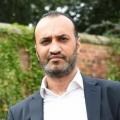
As times have changed some traditions have stood the test of time – others have not. Here, we take a look at seven Eid traditions for British Muslims.
1 New Moon:
The ‘discussions’ over the new moon have been going on for as long as we can remember and is a part of Eid as anything else. The Islamic months are based on the lunar calendar so this dictates when Ramadan begins and ends. These debates begin ahead of Ramadan itself and end on the days preceding Eid. Some years, Eid is celebrated on one day and others over two days as different mosques follow different schools of thought. In 2023 it is likely Eid will be celebrated on one day by all Muslims in the UK.
2 Morning prayers
The day begins with families visiting mosques for the morning prayers. In many UK towns these are staggered throughout the morning to accommodate people who may wish to pray at different times. Now, over the years this tended to be just the males as the mosques in many smaller towns could not or would not accommodate a female section. This has changed somewhat with some larger mosques now able to accommodate women. More importantly over the past decade larger outdoor gatherings have taken place so the whole family can partake in Eid prayers.
3 Visiting the cemetery
Traditionally many people will visit the graves of loved ones on Eid day. It is one of the reasons mosque prayers have staggered timings in the morning to ensure a large number of people do not turn up at the same time. Whilst most people will attempt to make the visit in the morning after prayers others will go later in the day.
4 Food
There are banquets and then there are Eid banquets. Throughout the day a vast amount of food is cooked in homes. Much of these are dedicated dishes that people will only ever eat on Eid. After a whole month of fasting you would think people would be constantly eating but that rarely happens. The body is now accustomed to eating smaller amounts so when Eid does arrive, you will find most people will still eat in small measures.
5 Clothes
Traditionally, many people will buy new clothes and outfits for Eid day. This could be the familiar shalwar kameez or Arab style Jubba or some of the latest designer wear (if you can afford it!). The lead up to Eid is the busiest time of year for Asian fashion boutiques and many will stay open late into the evening to accommodate the extra customers. Mainstream shopping centres and brands have also looked to cash in on the time of year by launching promotional campaigns ahead of the festival.
6 Money or presents?
Children tend to be given money on Eid from relatives and family friends. It is a tradition that has certainly changed little in recent years and cash remains king! People will also share sweet dishes in the form of Mathai with their neighbours.
7 Family
Eid is all about family. For many people visiting relatives can take up much of the day. It begins in the morning and continues throughout the day. Of course this can put a strain on some homes which are constantly being frequented by friends and families. In recent years and with larger extended families many people have now looked to book small halls to accommodate the extra guests as homes are just too small. This can be a task in itself with small halls now booked well in advance of the Eid festival.



Comments: Our rules
We want our comments to be a lively and valuable part of our community - a place where readers can debate and engage with the most important local issues. The ability to comment on our stories is a privilege, not a right, however, and that privilege may be withdrawn if it is abused or misused.
Please report any comments that break our rules.
Read the rules hereComments are closed on this article